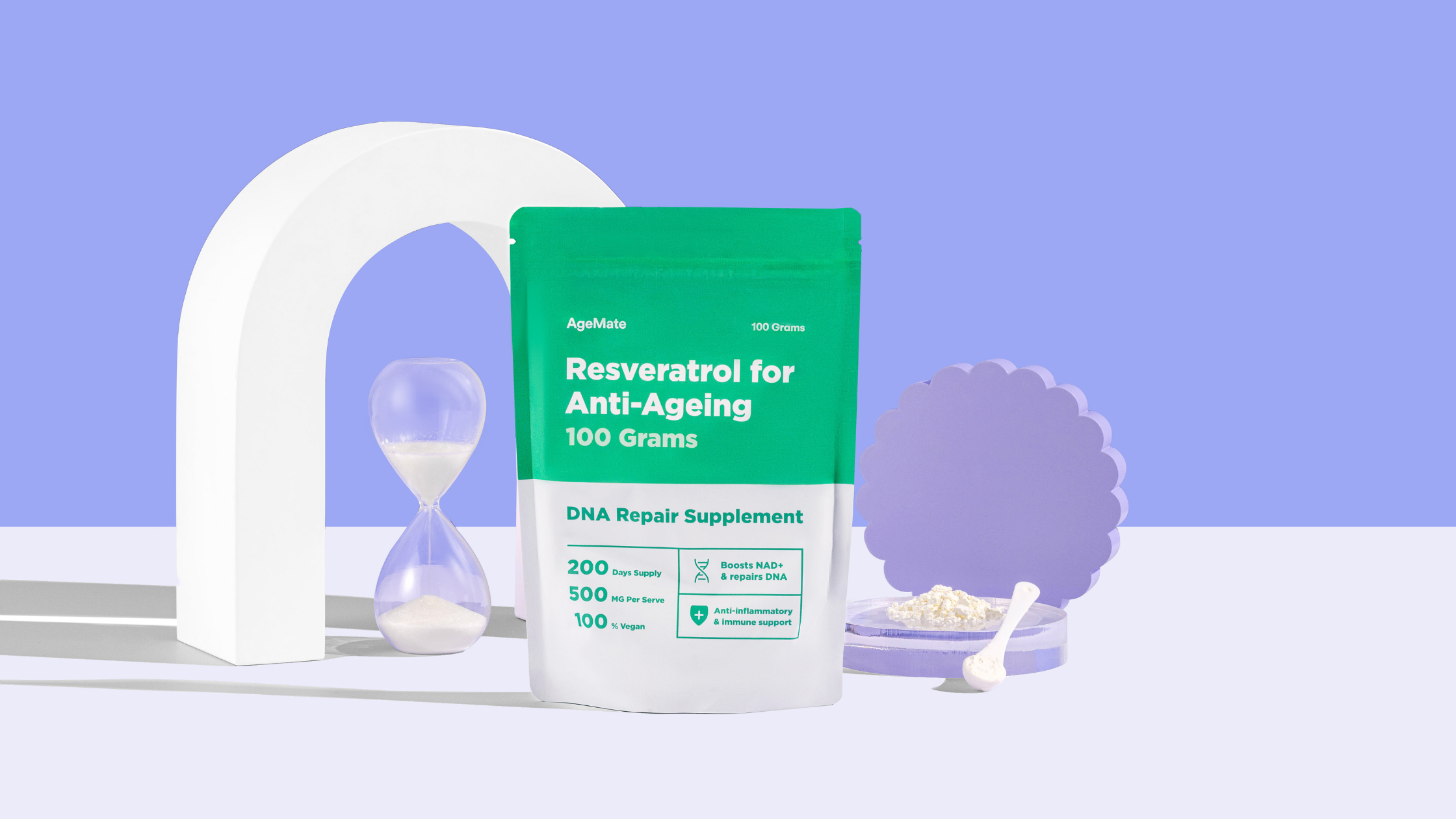As we age, our bodies undergo various changes, including shifts in metabolism, muscle mass, and fat distribution. These changes can lead to age-related weight gain, a phenomenon many individuals experience but may not fully understand.
In this article, we'll explore age-related weight gain, delve into the science behind it, provide strategies to fight against it and discuss how to accept and manage weight changes as we age.
The Connection Between Aging and Weight Gain
Age-related weight gain is not simply about eating more or exercising less; it's a complex process influenced by hormonal changes, metabolism slowing down, and alterations in body composition.
As we age, our bodies gradually lose muscle mass and experience an increase in fat accumulation. This shift affects our appearance and has significant implications for our overall health.
One of the key factors in this process is the change in our metabolic rate. The metabolism slows down with age, meaning our bodies require fewer calories to maintain the same weight (R).
This decrease in metabolic rate is partly due to the loss of muscle mass, as muscles are more metabolically active than fat tissue (R).
6 Strategies to Combat Age-Related Weight Gain
Combating age-related weight gain involves comprehensive lifestyle changes that address diet, exercise, and other weight management factors. Here are effective strategies to help prevent and manage weight gain as you age:
1. Focus on Nutrition
Eat a Balanced Diet: Prioritise whole foods, such as fruits, vegetables, lean proteins, and whole grains. These foods are rich in nutrients and can help you feel fuller for longer (R).
Control Portion Sizes: As metabolism slows with age, you might not need as many calories. Paying attention to portion sizes can help prevent overeating (R).
Reduce Processed Foods: Minimise intake of processed and high-sugar foods, which can contribute to weight gain and negatively impact overall health (R).

2. Enhance Physical Activity
Incorporate Strength Training: Muscle mass decreases with age, but strength training can help build and maintain muscle, increasing your metabolic rate. Aim for at least two sessions per week (R).
Regular Aerobic Exercise: Engage in activities like walking, cycling, or swimming for at least 150 minutes of moderate-intensity aerobic activity or 75 mins of vigorous-intensity activity per week, as recommended by health authorities (R).
Stay Active Throughout the Day: Incorporate more physical activity into your daily routine, such as taking stairs instead of elevators, gardening, or even standing more if you have a sedentary job (R).
3. Manage Stress and Sleep
Reduce Stress: High-stress levels can lead to weight gain, partly due to the stress hormone cortisol, which can increase appetite. Meditation, yoga, or deep breathing can help manage stress (R).
Ensure Adequate Sleep: Poor sleep can affect the hormones regulating hunger, increasing appetite and weight gain. Aim for 7-9 hours of quality sleep per night (R).
4. Monitor Health Metrics
Keep Track of Weight: Regularly monitoring your weight can help you notice trends and adjust your habits accordingly (R).
Check Body Composition: Consider measuring your body composition periodically to monitor changes in fat mass and muscle mass, allowing for more targeted adjustments to your lifestyle (R).
5. Stay Hydrated
Drink Plenty of Water: Adequate hydration is essential for a healthy metabolism and can help reduce the likelihood of overeating (R).
6. Seek Support
Professional Guidance: Consult with a dietitian, personal trainer, or healthcare provider to develop a plan that suits your unique needs and health status.
Social Support: Engage with community or support groups, which can provide motivation and accountability as you work towards your health goals.
Implementing these strategies can help mitigate the natural tendencies of the body to gain weight with age, promoting a healthier, more active lifestyle well into the later years of life.
Accepting Weight Gain as You Age
While fighting back against age-related weight gain is important, it's equally crucial to maintain a healthy perspective on body image and self-acceptance. A slight increase in weight as we age can be expected and not necessarily detrimental to health.
In fact, misperception and dissatisfaction with body weight are risk factors for participating in an unhealthy lifestyle and make it harder to follow a healthier lifestyle (R).
Focusing on overall wellness is important rather than just the number on the scale. Embracing changes in our bodies with a positive mindset can lead to a healthier and happier life.
What the Science Says About Aging and Weight Gain
Research indicates that hormonal changes play a significant role in age-related weight gain. For women, menopause brings a reduction in estrogen levels, which can lead to weight gain, especially around the abdomen (R).
For men, a decrease in testosterone levels can result in increased body fat and decreased muscle mass. Additionally, studies have shown that a reduction in the hormone leptin, which helps regulate hunger, can make it harder to maintain a healthy weight as we age (R).
At What Age Do Females Gain the Most Weight?
Women may notice the most significant weight gain during the transition to menopause, typically between the ages of 45 and 55. This period is characterised by hormonal fluctuations that can contribute to increased fat storage, especially in the abdominal area (R).
However, the extent of weight gain can vary significantly among individuals and can be influenced by lifestyle, genetics, and health factors.
At What Age Do Men Gain the Most Weight?
Men tend to experience gradual weight gain through adulthood, but the most significant increase often occurs from mid-20s to mid-40s. This period aligns with a time when metabolic rate begins to slow down, and lifestyle factors such as reduced physical activity, dietary changes, and increased stress might contribute to weight gain.
Additionally, after age 30, men typically start to lose muscle mass—about 3% to 5% per decade—unless they actively engage in strength training to counteract this decline. The loss of muscle mass slows down the metabolism, making it easier to gain weight if calorie intake is not adjusted accordingly (R).
Conclusion
Age-related weight gain is a natural part of the aging process, influenced by a combination of factors, including metabolic rate, hormonal changes, and lifestyle habits. By understanding these factors and adopting strategies to maintain a healthy lifestyle, we can manage and even prevent excessive weight gain as we age.
Embracing these changes with a positive attitude and focusing on overall health rather than just weight can lead to a fulfilling and balanced life. Remember, the goal is not to fight aging but to age gracefully and healthily.





